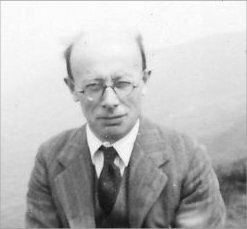Max Newman
Max Newman was known for his brilliant mathematical mind while working as a cryptologist at Bletchley Park during World War Two. His work led to the construction of ‘Colossus’, the first programmable computer.
Born on 7 February 1897 to a German immigrant, Max Newman grew up in Chelsea, London. Newman had already won a scholarship to Cambridge when he was called up for military service in World War One. Newman’s father, Herbert Newman, was interned as an illegal alien and returned to Germany upon his release. However, Max claimed to be a conscientious objector because of his religious beliefs and his father’s country of origin.
Newman graduated from St John’s College in 1921 after having excelled at Mathematics. He became a Fellow of St. John’s and then a lecturer in 1927. One of his lectures was attended by Alan Turing.

Newman stayed at Cambridge during World War Two before being requested to join the staff at Bletchley Park in 1942. He had assumed he would not have been involved in any secret work as a result of his German background, but the managers at Bltchley Park felt that thanks to his mathematical talent he would make a good codebreaker.
Newman believed that the codebreaking process could be made faster is mechanisation was used. Newman was given permission and started work on his own code breaking machine in January 1943.
By June he had built the first prototype, nicknamed ‘Heath Robinson’, but it kept on breaking down. On paper the machine was capable of decoding 1,000 characters a minute, but its frequent break-downs lowered this figure significantly. Engineer Tommy Flowers improved on Newman’s model and worked on his own machine, ‘Colossus’, which is seen as the world’s first computer.
At the end of the war Newman, and the rest of Bletchley Park, was sworn to secrecy. In September 1945, Newman he was appointed head of the Mathematics Department at Manchester University.
Max Newman died on 22 February 1984.
See also: William Tutte
MLA Citation/Reference
"Max Newman". HistoryLearning.com. 2025. Web.
